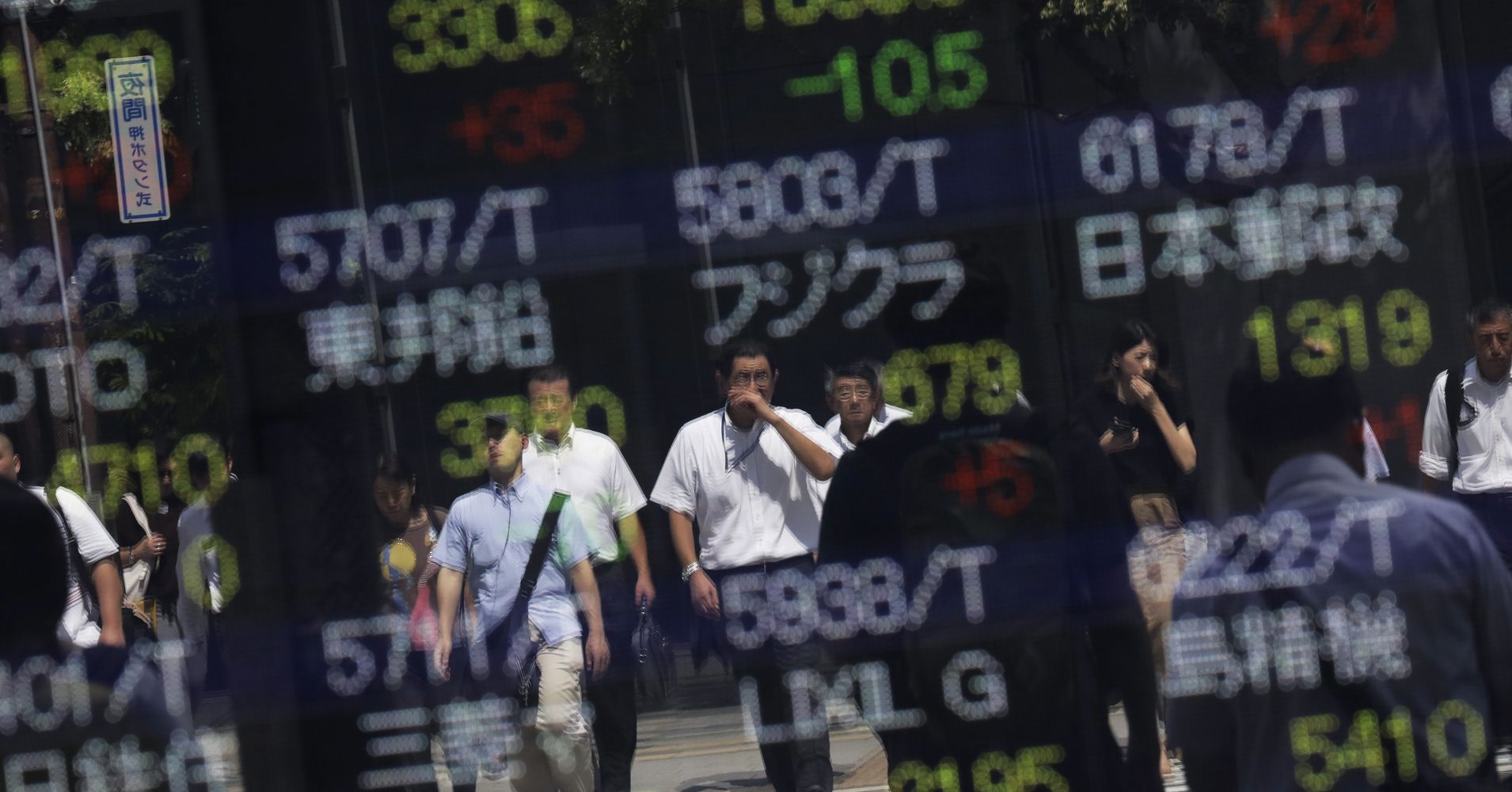
Stocks in Asia slipped on Tuesday morning, following a roller coaster session on Wall Street.
In Japan, the Nikkei 225 slipped 0.36 percent just after the market open while the Topix index saw a slight decline.
The moves in Japan came despite positive news on the economic front: Government data showed that the seasonally adjusted unemployment rate fell to 2.3 percent in September from 2.4 percent in August.
Down Under, the benchmark ASX 200 declined 0.34 percent in the morning, with most sectors seeing losses. The energy sector fell 0.65 percent and materials slipped 0.72 percent.
The heavily weighted financial subindex shed its earlier gains despite shares of Australia’s so-called Big Four banks mostly rising: ANZ shares were up 0.3 percent, Commonwealth Bank added 0.47 percent, Westpac was up 0.11 percent. National Australia Bank, on the other hand, slipped 0.44 percent.
South Korea’s Kospi, meanwhile, fell 0.1 percent in early trade.
Chinese markets, which open at 9:30 a.m. HK/SIN, will be looking to recoup some of their losses after another rough trading session on Monday. It’s been a tough October for mainland shares: The Shanghai index has fallen by almost 9.9 percent while Shenzhen has dropped more than 12.2 percent.
The U.S. dollar index, which tracks the greenback against a basket of its peers, was at 96.660 in the morning after seeing lows around the 96.3 handle in the previous session.
The Japanese yen was at 112.37 against the greenback after weakening from levels around 111.8 yesterday. The Australian dollar was at $0.7062 following a slide from above the $0.709 handle in the last session.
Overnight on Wall Street, stocks closed lower after giving up sharp gains from earlier in the trading day. The Dow Jones Industrial Average fell 245.39 points to 24,442.92, after a brief dip into correction territory during the session. The S&P 500 slipped 0.7 percent to 2,641.25 by the closing bell — the index is now down 10.2 percent from its high reached at the end of September. The Nasdaq Composite declined 1.6 percent to close at 7,050.29.
The moves followed a Bloomberg News report that said the United States is preparing new tariffs against all remaining Chinese imports if trade talks between Presidents Donald Trump and Xi Jinping fail to reconcile the ongoing trade dispute.
Both countries have already implemented levies on billions of dollars worth of each other’s goods.
— CNBC’s Fred Imbert and Thomas Franck contributed to this report.
